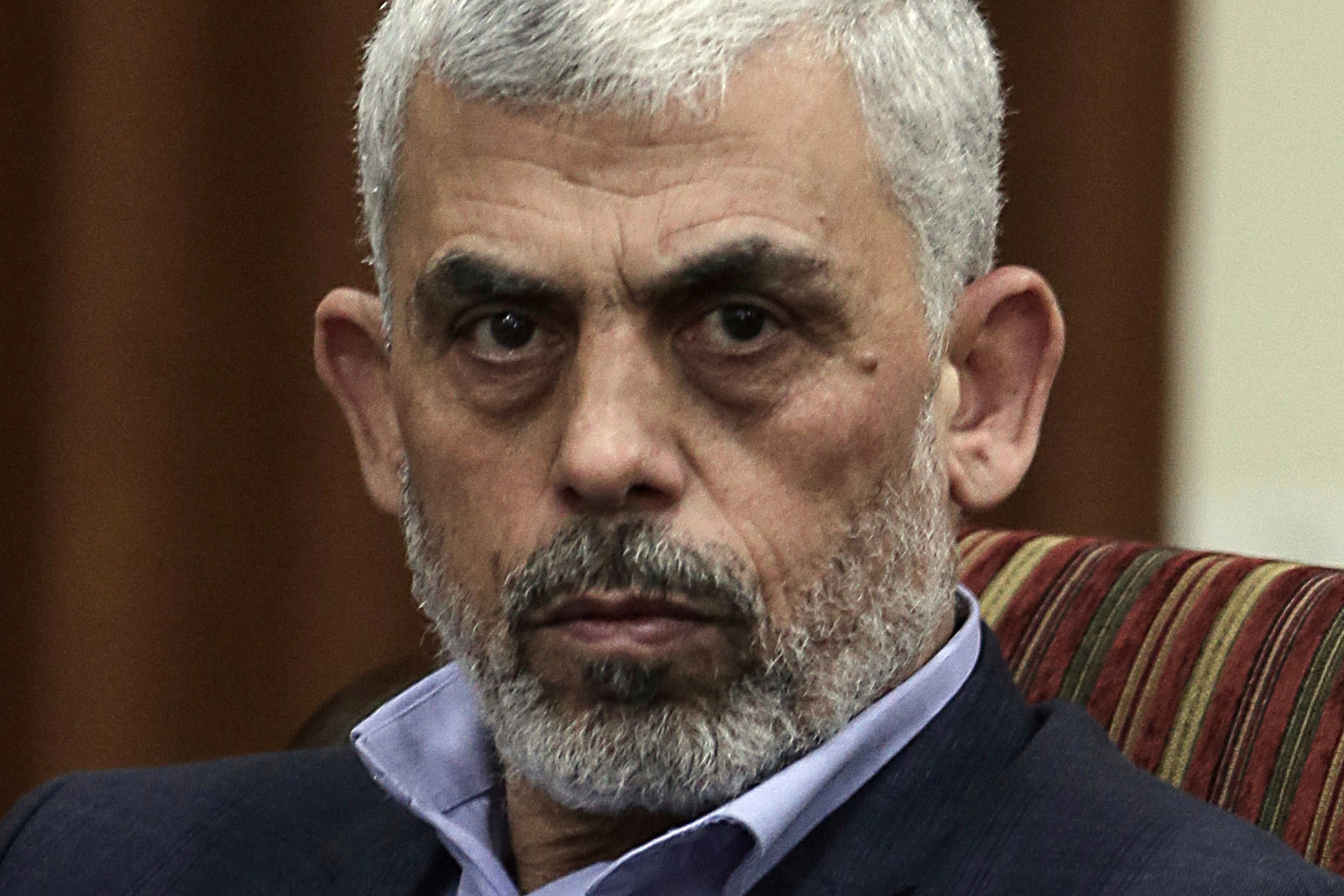Yahya Sinwar’s death is a victory – but Israel will only know security when it lives in peace with those around it
Editorial: On the face of it, the death of the Hamas leader represents the greatest victory for the Israelis – and prime minister Benjamin Netanyahu – since 7 October. Yet the wars continue

The statement issued by Sir Keir Starmer on the confirmation of the death of Yahya Sinwar admirably sums up the sober way that all decent people will have received the portentous news: “As the leader of the terrorist group Hamas, Yahya Sinwar was the mastermind behind the deadliest day in Jewish history since the Holocaust, as 1,200 people were slaughtered in Israel. Today my thoughts are with the families of those victims. The UK will not mourn his death.”
Perhaps, in some idealised parallel universe, Sinwar would have been taken prisoner by the Israelis, and in due course placed on trial to face justice for his crimes. The world might have learnt much from such a process.
It would also have demonstrated that Israel should be defending itself always within international law; and might have reminded Israel’s critics that, despite some grievous flaws and a serious case to answer about its conduct of the war, it remains a democratic state with an independent judiciary.
As it happens, the circumstances of Sinwar’s demise didn’t allow for any such discretion in the matter. In contrast to previously targeted assassinations of Israel’s adversaries, with Sinwar, the Israeli forces got lucky. Sinwar was killed in a firefight with a routine patrol and his identity was suspected only when an Israeli soldier recognised his bloodied face – and DNA tests were carried out.
Had he not been identified, the fate of Sinwar would have remained obscure – and no doubt disputed – for some time. Now, there is no disputing that the architect of the 7 October atrocities is indeed dead and Hamas has lost yet another of its principal leaders.
On the face of it, then, it represents the greatest victory for the Israelis since 7 October and a personal vindication for the prime minister, Benjamin Netanyahu. During the spring, Mr Netanyahu had been under intense international pressure not to invade Rafah in the south of Gaza, for fear of another humanitarian disaster. Yet now it has been proven beyond doubt that this is precisely where Sinwar had been hiding.
That does not in itself justify the Israelis’ conduct of the war, which remains disproportionate and counterproductive – but it is an argument that the Israeli prime minister will deploy to confound his opponents at home and abroad and bolster his political position. It will certainly have done his popularity no harm with the still-traumatised Israeli people, just after the anniversary of those deadly attacks on civilians.
So, far from the death of Sinwar prompting Netanyahu to declare victory and wind down operations, the war – or, rather, wars – go on. Sinwar’s end represents only one of the Israeli government’s war aims – and while the release and return of hostages remains unfulfilled, there will be no end to the fighting. Nor will there be an end to the humanitarian crises of famine and disease, nor the death of innocents. In mock Churchillian language, Netanyahu will say only that this moment marks “the beginning of the end”.
It needs to. With or without Sinwar, Hamas will continue to operate, in some form. It has a ready supply of the freshly aggrieved and bereaved to recruit to its cause. Sinwar will be replaced.
Even if Hamas were somehow to be so degraded as to disintegrate, another terror-based organisation would take its place, just as Hamas and Hezbollah succeeded the Palestinian Liberation Organisation and other antecedent movements. Sinwar or not, Israel still needs to be stopped from launching attacks on Iran that could turn the present tragedies into a regional conflagration with unknowable consequences.
The West, led by America, has to keep up the pressure and increase it incrementally until Netanyahu and his colleagues understand that the West cannot underwrite the consequences of bombing Iran’s suspected nuclear facilities or oil installations. The diplomatic efforts must be redoubled and the flow of arms steadily slowed.
As far as Hamas is concerned, the usual channels must be used to secure the hostages’ freedom; and Hezbollah urged to end its bombardments from Lebanon. A ceasefire, urgently needed, cannot be a one-sided affair.
Israel, it is fair to say, “eliminated” Yahya Sinwar, as they put it, while acting in self-defence – there can be no doubt that this Hamas commander would have done the same again and again without any care for the Israeli and Palestinian people who would subsequently perish as a result of his murderous scheming.
Yet it remains true now, as it was for many decades before 7 October, that Israel will only know security when it can live in lasting peace with those around it.






Join our commenting forum
Join thought-provoking conversations, follow other Independent readers and see their replies
Comments